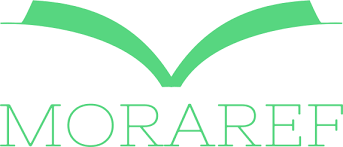Penyuluhan tentang Pengelolaan Sampah Masker Saat Pandemi
Abstrak
Masker merupakan barang wajib dimiliki hampir semua orang selama masa pandemi COVID-19 bahkan sebaiknya diganti setiap 4 jam pemakaian, hasilnya tentu timbulan sampah. Kegiatan ditujukan untuk meningkatkan kapasitas peserta tentang pengelolaan sampah masker. Bentuk kegiatan berupa diskusi virtual menghadirkan satu narasumber dengan melibatkan tim pengabdian kepada masyarakat dari Universitas Negeri Jakarta dan SMKN 1 Jakarta sebagai khalayak sasaran. Peserta yang mengikuti kegiatan sebanyak 26 orang. Partisipasi peserta berupa keikutsertaan mengikuti sesi berbagi dan mengajukan beberapa pertanyaan sebagai bahan diskusi. Pertanyaan yang diajukan awalnya fokus pada perilaku pengelolaan sampah masker dan kemudian berkembang ke arah karakteristik virus dan tes COVID-19. Kegiatan ini perlu ditindaklanjuti dengan perluasan khalayak sasaran mengingat kompleksnya permasalahan sampah masker dan pengetahuan umum tentang karakteristik virus.
##plugins.generic.usageStats.downloads##
Referensi
Cowan, T. S., & Morell, S. F. (2020). The Contagion Myth Why Viruses (Including Coronavirus) Are Not the Cause of Disease. Skyhorse Publishing.
Halmar, H. F., Febrianti, N., Kurnyata, M., & Kada, R. (2020). Pemeriksaan Diagnostik COVID-19 : Studi Literatur. Jurnal Keperawatan Muhammadiyah, 5(1), 222–230. https://core.ac.uk/download/327263764.pdf
Mejjad, N., Cherif, E. K., Rodero, A., Krawczyk, D. A., Kharraz, J. El, Moumen, A., Laqbaqbi, M., & Fekri, A. (2021). Disposal behavior of used masks during the covid‐19 pandemic in the moroccan community: Potential environmental impact. International Journal of Environmental Research and Public Health, 18(8). https://doi.org/10.3390/ijerph18084382
Mulyadi, D. S. (2021). Dampak dari Pandemi Covid 19 Kepada Lingkungan. In PT. Amrita Enviro Energi: Vol. III (Issue 39). https://www.amritaenviro.com/file/download/4878906newsletter 39.iii.2021.pdf
Nurfadhilah, Firdaus, A., Syahrulloh, A., Ichsan, I. Z., & Sigit, D. V. (2021). Situasi Kesehatan Masyarakat pada Penyintas dan Warga Terdampak Bencana Banjir di Desa Pantai Bahagia , Muara Gembong. J-Mestahat IAKMI Tangerang Selatan, 1(Januari 2021), 36–44. http://jurnal.iakmitangsel.id/index.php/jm/article/view/72/59
Nurfadhilah, & Utomo, E. (2020). Virus, Kenali-Hindari (March, 202). FKM UMJ. https://fkm.umj.ac.id/telah-hadir-buku-hypercontent-kenali-dan-hindari-virus/
Nurfadhilah, Utomo, E., & Neolaka, A. (2021). Hypercontent Book Virus, an Alternative for Learning at Higher Grades of Elementary School in the Middle of Covid-19 Pandemic. 566(Aes 2020), 102–106. https://www.atlantis-press.com/proceedings/aes-20/125958643
WHO. (2020). Penggunaan Masker Dalam Konteks COVID-19. In World Health Organization (pp. 1–23). WHO. https://www.who.int/docs/default-source/searo/indonesia/covid19/penggunaan-masker-dalam-konteks-covid-19.pdf?sfvrsn=9cfbcc1f_5
Yudhastuti, R. (2020). The use of cloth face maskduring the pandemic period inindonesian people. Kesmas, 15(2), 32–36. https://doi.org/10.21109/KESMAS.V15I2.3945
- Authors retain copyright and grant the journal right of first publication with the work simultaneously licensed under a Creative Commons Attribution License that allows others to share the work with an acknowledgement of the work's authorship and initial publication in this journal.
- Authors are able to enter into separate, additional contractual arrangements for the non-exclusive distribution of the journal's published version of the work (e.g., post it to an institutional repository or publish it in a book), with an acknowledgement of its initial publication in this journal.
- Authors are permitted and encouraged to post their work online (e.g., in institutional repositories or on their website) prior to and during the submission process, as it can lead to productive exchanges, as well as earlier and greater citation of published work (See The Effect of Open Access).








